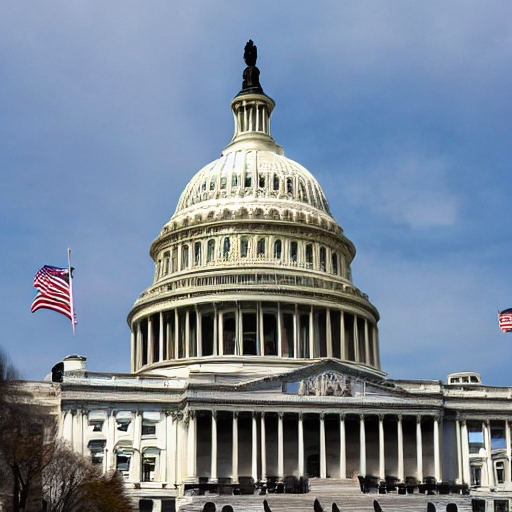Several measures that would create a regulatory framework for cryptocurrencies are scheduled for a vote this week in a significant congressional committee, marking a significant step forward for Capitol Hill in its efforts to formalize federal regulation of the digital asset market.
Since investors were duped by the abrupt failures of Celsius Network, Voyager Digital, FTX, and other companies last year, the cryptocurrency industry has been targeted by regulators.
A bill that would specify whether a cryptocurrency is a security or a commodity and another that would set up a system to regulate stablecoins—digital tokens typically backed by conventional assets like the U.S. dollar—are among the pieces of legislation the House Financial Services Committee is scheduled to consider.
The markups, where legislation is discussed and put to a vote, are the first time crypto regulatory bills will be put to a vote in Congress. This is a victory for crypto lobbyists who have pushed lawmakers to provide regulatory clarity for the industry.
The House Financial Services Committee is scheduled to consider several pieces of legislation, including one that would define whether a cryptocurrency is a security or a commodity and another that would create a system to control stablecoins, which are digital tokens typically backed by traditional assets like the U.S. dollar.
The first time crypto regulatory laws will be put to a vote in Congress will be during the markups, where legislation is considered and put to a vote. This is a win for cryptocurrency advocates who pressured lawmakers to provide the sector legislative certainty.
The Republican committee chair, Representative Patrick McHenry, has stated that advancing a crypto market structure bill is his top priority. This legislation would increase the Commodity Futures Trading Commission’s (CFTC) oversight of the cryptocurrency industry while defining the SEC’s authority, as many crypto advocates criticize the agency for its alleged overreach. On Wednesday during a markup, his committee is anticipated to consider the legislation, and on Thursday, the House Agriculture Committee is anticipated to do the same.
Many in the cryptocurrency sector are excited about the measure and believe that it could pass the Senate with Democratic backing.
Anything that wants to stick around needs some bipartisan support, according to Miller Whitehouse-Levine, CEO of the DeFi Education Fund, a lobbying organization specializing in decentralized finance.
Clarity on Tokens
Crypto companies first operated in a legally ambiguous environment, but the SEC has slowly asserted its control over the cryptocurrency business, alleging that the majority of cryptocurrencies are securities and are therefore governed by its laws for investor protection. When the SEC sued cryptocurrency exchanges Coinbase (COIN.O) and Binance for failing to register some crypto assets, that campaign intensified last month. The two contest the accusations.
The majority of cryptocurrency businesses contest the SEC’s authority and have pushed Congress to pass legislation in recent months that makes it clear that cryptocurrencies are more closely related to commodities than securities.
Maxine Waters, the top Democrat on the Financial Services committee, and other Democrats are not yet certain whether they would support the market structure plan. A remark was requested, but a Waters spokeswoman didn’t provide anything.
On Thursday, lawmakers will also vote on a bill that would let state authorities to continue to exercise their jurisdiction while the Federal Reserve creates specifications for stablecoin issuance.
Some Democrats, notably Waters, expressed worry that stablecoin issuers would choose to be regulated by a state system in order to avoid greater monitoring. These concerns led to changes being made to the bill.
A federal stablecoin regime is “not essential,” according to McHenry, who also added that there are state frameworks currently in place. McHenry stated this month that he and Waters were still hopeful of reaching an agreement on the bill.








